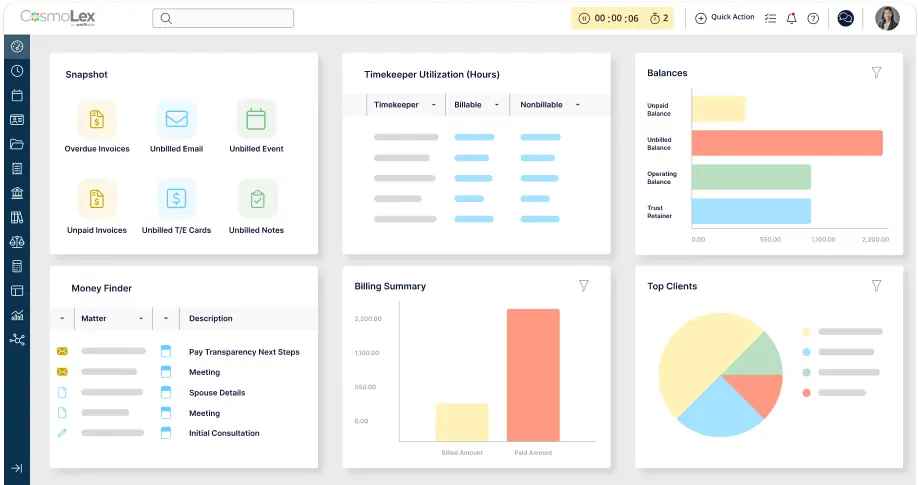
How to Resolve Unhappy Client Situations: Effective Strategies for Lawyers
Clients trust their attorneys to guide them through complex legal situations and difficult periods of their lives. It’s inevitable that you’ll have moments when a...

How to Grow a Law Firm. A Practical Guide for Sustainable Success.
Growing a law firm is rarely about doing one big thing. It is about making smarter decisions across marketing, operations, finances,...

Law Firm Credit Card Guide: Rules, Fees, and Smart Setup
Accepting credit cards can improve cash flow, but law firms must follow strict ethical rules. This law firm credit card guide...

Law Firms and the Cloud: The Real Pros, Cons, and Payoff
At some point, every firm hits the same crossroads: outdated software vs. the cloud. This guide separates hype from reality, covering...

A Practical Playbook for Running a Remote Law Firm
Running a remote law firm requires more than just working from home. Discover the essential infrastructure, security safeguards, and automated workflows...

Are Accounts Receivable an Asset?
Attorney billing increments help firms track time consistently, but they can also create manual work and errors. Learn the most common...
The intuitive design and robust features of CosmoLex have been a game-changer for my firm. I recommend it to any solo practitioner looking to reclaim their time.

Jonathan Roth
Founder, Roth Advocacy
Canada
Customer Centric Messaging
Cosmolex provides a familiar and simple user interface that allows our firm to quickly and efficiently manage billing and times.

Attorney Billing Increments: Which One Fits Your Firm?
Choosing the right billing increments helps firms track time in a fair, consistent way while keeping invoices accurate and easy to...
What Is the Difference Between a Flat Fee Agreement and a Retainer for Law Firm Pricing?
What’s the difference between a flat fee agreement vs retainer? Learn when to use each model to optimize your law firm’s...

Law Firm Accounting Guide: What You Need to Know About Handling Client Funds
This law firm accounting guide walks you through the core areas of legal accounting to manage client funds confidently, stay compliant...

What Are the Most Common Ethics Violations for Lawyers?
What are the common ethics violations for lawyers? We break down the most frequent risks—from conflicts of interest to trust accounting...

How Much Should Your Law Firm Bill for Paralegal Work?
Law firms can bill paralegal work at market rates, increasing firm profitability. Learn how to determine the right paralegal billing rate...

What Forms of Payment Do Lawyers Accept?
If you’re hiring a lawyer, you have options for payment! Learn about the most common lawyer payment methods, from credit cards...

The Best States for Lawyers: Where to Grow Your Legal Career
Where you choose to practice law matters. From practice opportunities and salary expectations to quality of life, geography can shape everything...

Choosing the Right Law Firm Compensation Model for Your Practice
Beyond just salaries, an effective law firm compensation model is a strategic tool for shaping culture, inspiring top performance, and achieving...

Legal Workflow and Marketing Automation for Law Firms. Four Ways it Simplifies your Practice.
Running a law firm means constantly shifting from serving clients and managing cases to staying compliant and planning for the future....
Sign up for weekly tips and news from CosmoLex.
Simplify your practice with one tool.
Book a demo.
Book a personalized demo with a CosmoLex specialist and see the platform in action.





